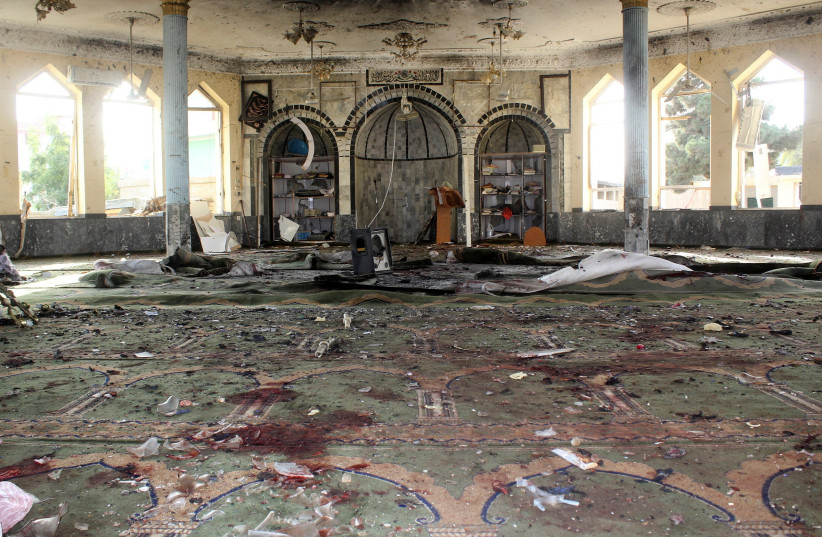Attacks targeting minorities are on the rise in Afghanistan, and an attack in Pakistan this week appeared to target Chinese residents, raising alarms about the chaos that could be unleashed if both countries continue to be unstable. Attacks in Afghanistan have targeted minority Shi’ite Muslims during Ramadan. While these attacks are clearly linked to groups like ISIS, they are also part of the wider anti-Shi’ite views that are common among extremists, including in Taliban ranks.
Shia are often suppressed in countries like Afghanistan and Pakistan. In addition, genocidal attacks by Sunni jihadist supremacists have taken place in countries like Iraq. ISIS, for instance, massacred Shi’ites in 2014 before it committed genocide against Yazidis in Iraq. Today the Shi’ites of Afghanistan have few protections and have to beg the Taliban to provide security. In a recent attack, a bomb targeted a mosque in Kunduz district. Reports say 33 people were murdered. Some media outlets tried to obfuscate and call this a “blast” to avoid having to say that the targeting of Shi’ites was purposeful. This is because many do not want to admit that the Taliban returning to power could lead to more chaos and ethnic cleansing of minorities. The Taliban are backed by Qatar, Pakistan and other countries.
CNN noted that the attack in Kunduz came along with explosions in “another city, Mazar-i-Sharif in northern Afghanistan. Separate explosions hit learning facilities in western Kabul on Tuesday, killing students.”
Some in the media also try to make the attacks appear to be “both sides,” as if there are also attacks on Sunni mosques during Ramadan in Afghanistan. National Public Radio noted “an attack that hit a boys’ school in Afghanistan’s capital has left students dead and wounded. It’s the latest in sectarian violence against Shia Muslims since the Taliban took control in 2021.”
The truth is that there are only attacks on Shi’ites; it is not “sectarian.” It is a one-sided campaign against a minority community.

Some reports note that it is unclear who is behind these attacks. The BBC reported that “a suspected twin suicide bombing outside a boys’ school in the Afghan capital Kabul has killed at least six people and wounded 11, officials say. The blasts happened at the Abdul Rahim Shahid High School in the Shia-dominated west of the city. The number of dead and wounded is likely to rise. A nearby tuition center was also targeted in a grenade attack. There was no immediate claim of responsibility. Islamic State militants have attacked the area in the past.”
The word “blasts” was also used in this report to obscure the brutal reality of the attack.
Meanwhile across the border in Pakistan, there was an attack on Chinese residents of Islamabad. BBC reports that “China has condemned an attack that killed three of its citizens in Pakistan, demanding that Islamabad fight against those involved. Three Chinese tutors and a Pakistani driver were killed in a suicide bombing near Karachi University’s Confucius Institute on Tuesday.” Reports say the Baloch Liberation Army (BLA) was behind the attack; the group appears to have claimed responsibility.
A statement apparently from the BLA, which was distributed to the media said that the “BLA Majeed Brigade targeted Chinese officials in Karachi today.” The statement goes on to say that the “Baloch Liberation Army’s Majeed Brigade targeted Chinese officials in a successful self-sacrificing attack on Tuesday in Karachi. Three Chinese officials [were killed]… and their security guards were injured.”
The statement claimed that a woman had carried out the attack, saying she had “sacrificed herself for a better future of [the] Baloch nation. She added a new chapter to the Baloch resistance history by becoming the first female fedayee of [the] Baloch nation.” The organization claims that Pakistan is attempting to carry out a “genocide” in Balochistan and occupying the area. Fedayeen are ideology-driven “freedom fighters” who are willing to die for their cause.
Overall, although the attacks are not linked, they illustrate that Pakistan and Afghanistan continue to be unstable – which could harm the wider region.
